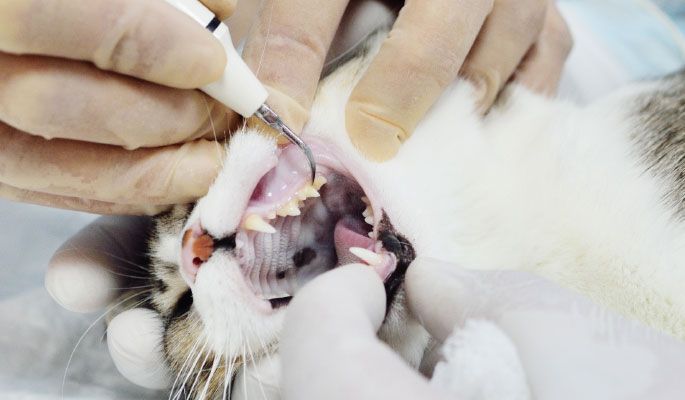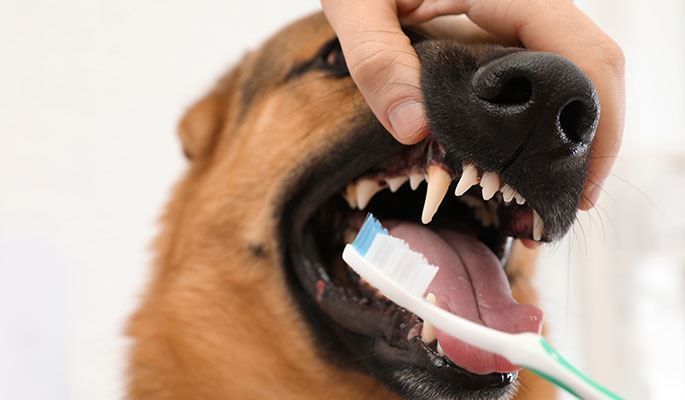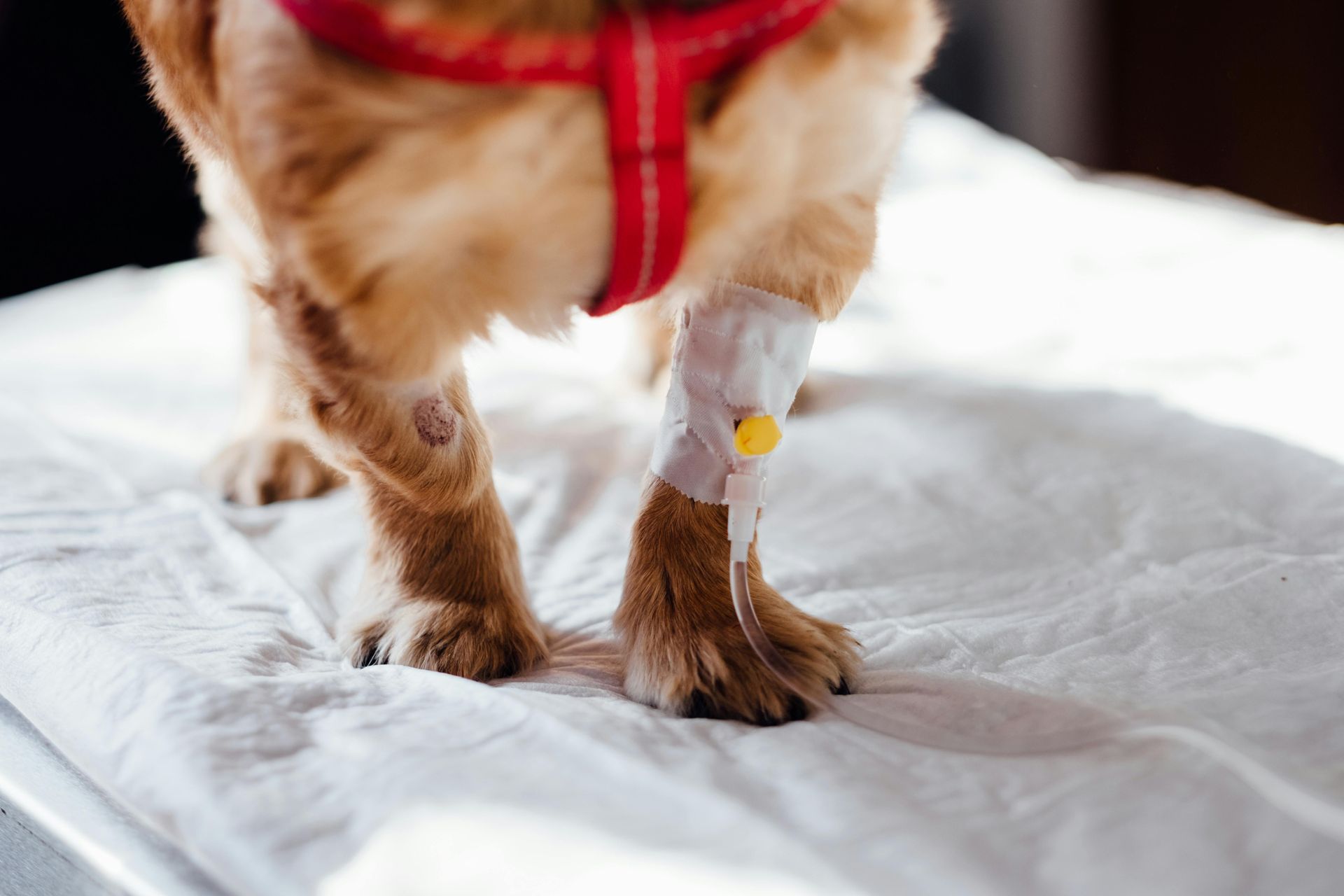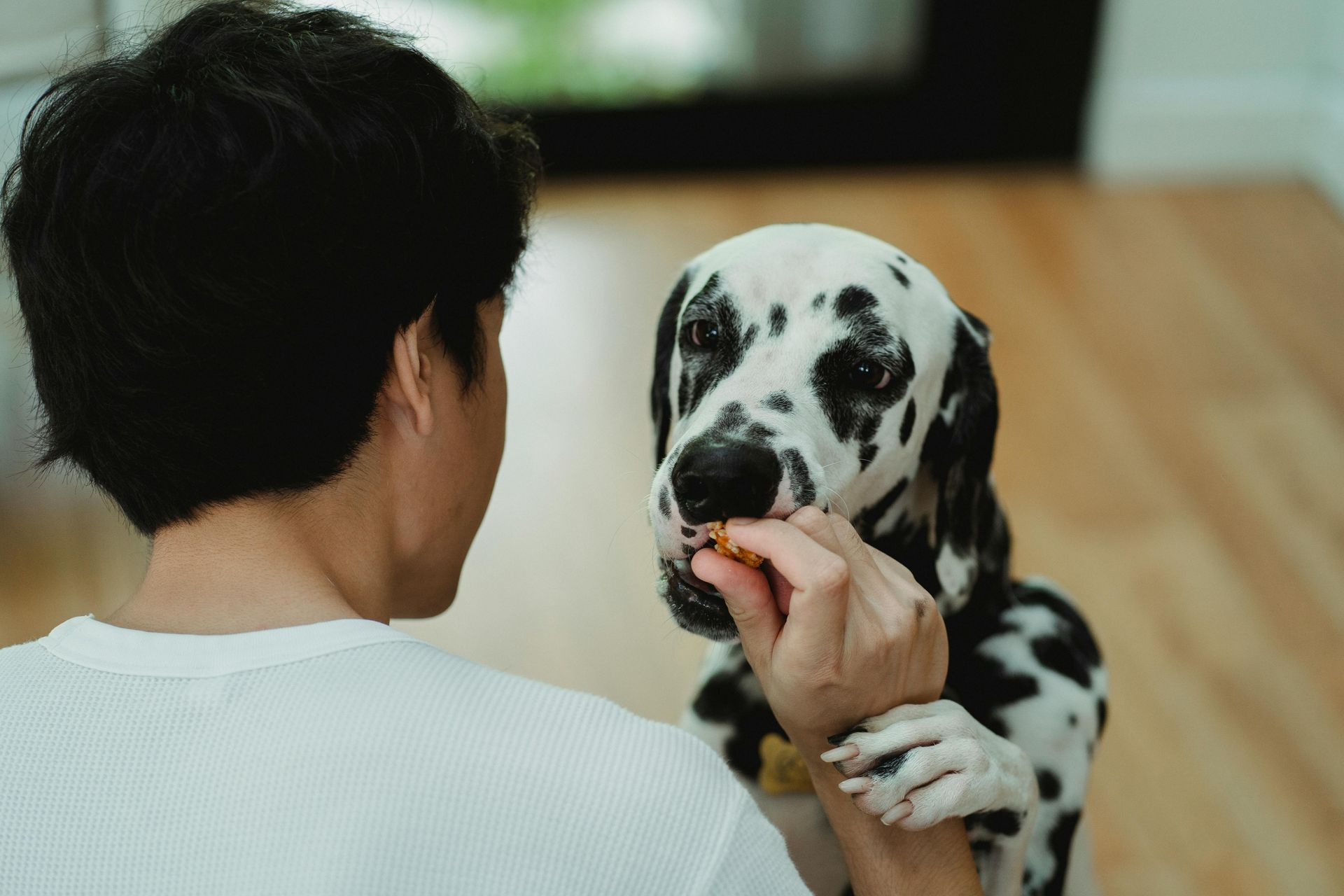Dentistry
Dentistry is a rapidly growing area of veterinary science. More and more we are understanding the significant effect dental health can have on the overall health of the animals we treat.
Just like humans, pets’ teeth need looking after too! The health of their teeth and gums has a significant impact on their overall quality of life. Imagine how your mouth would feel, and smell, if you never brushed your teeth. Imagine having a really bad toothache and not being able to tell anyone about it!
Dental disease typically begins with a build-up of plaque, consisting of bacteria, food particles and saliva components, on the teeth. Plaque sticks to the tooth surface above and below the gum line and if not removed will calcify into tartar (also known as calculus). This appears as a yellow-brown material on the teeth. Over time the plaque and tartar can result in periodontal disease, which results can result in irreversible changes to the teeth and supportive structures.
Periodontal disease can result in local problems, such as red and inflamed gums, bad breath, and the loss of teeth. There is also growing evidence that periodontal disease can be associated with disease in distant organs, including the heart, liver and kidneys. Ultimately, dental disease is more than just a cosmetic issue – it can be a cause of significant illness and pain in dogs and cats.
Common signs of dental disease include:
- Yellow-brown tartar around the gum line
- Inflamed, red gums
- Bad breath
- Change in eating or chewing habits (especially in cats)
- Pawing at the face or mouth
- Excessive drooling
- Pain or bleeding when you touch the gums or mouth
If your pet is showing any of these signs of dental disease please book an appointment to see one of our veterinarians. Early assessment and action can save your pet’s teeth!
Some animals with dental disease may show no obvious signs particularly in the early stages. It is also important to remember that just because your pet is eating, it doesn’t mean they do not have dental pain.

How can I prevent dental disease?
Long-term control and prevention of dental disease requires regular home care. The best way to begin this is to acclimatise your pet from a young age.
Dental home care may include:
- Brushing Teeth Daily: Just like us! This is the best form of dental hygiene. Pet toothbrushes and toothpaste are now available. Please do not use human toothpaste formulas as they are not designed to be swallowed and may be toxic to your pet.
- Teeth Friendly Chews and Toys: Use dental toys, enzymatic chews, or teeth cleaning biscuits, all of which may help keep the teeth clean.
- Special Dental Diets: Feed pets special dental diets. This can help reduce the accumulation of tartar.
As with most things in life, when it comes to dental disease, prevention is definitely better than cure. Regular and frequent attention to your pet's teeth may avoid the need for a professional dental clean under anaesthetic, and will also improve your pet's overall health.

What does a professional dental clean involve?
It is similar to a scale and polish done by a dentist for us, however, unlike us, our pets won’t sit still or open their mouth to allow a comprehensive examination or cleaning of their teeth. For this reason our pets need to have a general anaesthetic for a professional dental assessment and clean. Your pet will need to be assessed by one of our veterinarians.
The degree of dental disease will be assessed to determine what type of treatment is required.
The assessment will also include a physical exam, and possibly blood tests and urine tests to ensure they are healthy prior to having an anaesthetic. Once anaesthetised, we can give the teeth a thorough cleaning using our specialised dental equipment. When your pet goes home we will also discuss methods of reducing dental disease in the future.
If you have any questions about dental care or professional cleaning please do not hesitate to contact us.











